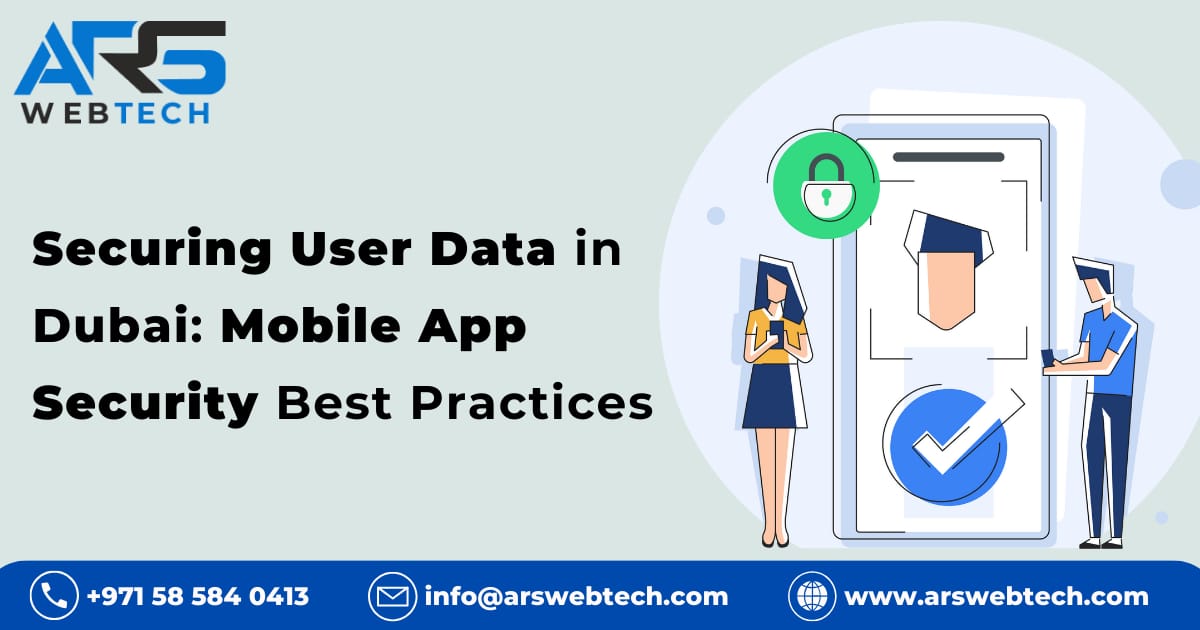In today's digital age, mobile apps have become an integral part of our daily lives. From communication and entertainment to productivity and healthcare, mobile apps offer convenience and efficiency. However, with this convenience comes a significant concern—security. Mobile app security is a paramount issue worldwide, including in Dubai. In this blog, we will explore the importance of securing user data in Dubai, focusing on best practices for mobile app security. We will also highlight the crucial role that top mobile app development companies play in ensuring the safety of user data.
The Mobile App Landscape in Dubai:
Dubai is rapidly becoming a tech-savvy City, with a growing reliance on mobile apps for various aspects of life:
Mobile App Adoption: Smartphone penetration in Dubai is exceptionally high, making it one of the most connected cities in the Middle East. Consequently, the use of mobile apps has skyrocketed.
Economic Diversification: As part of the City's Vision 2030 plan, Dubai is focused on diversifying its economy, with technology and innovation at the forefront. This has led to a surge in technology startups and mobile app development.
Digital Transformation: The Saudi government is actively promoting digital transformation, which includes the development of mobile apps for e-government services, healthcare, education, and more.
Mobile Commerce: Mobile apps for online shopping and mobile payment services are widely adopted by Saudi consumers.
The Importance of Mobile App Security:
In a landscape where mobile apps are deeply integrated into daily life, the importance of mobile app security cannot be overstated:
User Data Protection: Mobile apps often collect and store sensitive user data, including personal information, financial details, and location data. Ensuring the protection of this data is paramount.
Trust and Reputation: Security breaches can severely damage the reputation of an app and its developers. Users are increasingly conscious of their data's security and privacy.
Legal Compliance: Dubai has stringent data protection laws and regulations. Failing to comply with these regulations can lead to severe penalties.
Business Continuity: Security breaches can disrupt app services, leading to financial losses and damage to business continuity.
Mobile App Security Best Practices:
To ensure the security of user data in mobile apps, developers and businesses should adopt the following best practices:
Data Encryption: Encrypt data both in transit and at rest to protect it from unauthorized access.
Secure Authentication: Implement strong and secure authentication methods, such as two-factor authentication, to ensure that only authorized users can access the app.
Secure Coding Practices: Developers should follow secure coding practices to minimize vulnerabilities. Regular code reviews and penetration testing are essential.
API Security: Secure APIs to prevent data breaches and unauthorized access.
Regular Updates and Patching: Keep the app and its dependencies up to date with the latest security patches and updates.
Data Minimization: Collect and store only the data that is necessary for the app's functionality.
User Education: Educate users about security best practices and the app's data handling policies.
Secure Data Storage: Implement secure data storage mechanisms to protect data on the device.
The Role of Top Mobile App Development Companies:
Top mobile app development companies in Dubai play a crucial role in enhancing mobile app security. They offer services that include:
Security Audits: Conduct thorough security audits to identify vulnerabilities and weaknesses in the app.
Compliance with Regulations: Ensure that the app complies with Dubain data protection regulations and international standards.
Security Features: Integrate security features, such as biometric authentication and secure data transmission, into the app's design.
Continuous Monitoring: Implement continuous monitoring of the app's security to detect and respond to threats in real-time.
Incident Response: Develop an incident response plan to address security breaches promptly and effectively.
FAQs - Mobile App Security in Dubai:
1. Are mobile apps in Dubai required to comply with data protection regulations?
Yes, mobile apps in Dubai must comply with data protection regulations, including the Saudi Data and Privacy Protection Law.
2. What are the potential consequences of a security breach in a mobile app in Dubai?
A security breach can result in financial penalties, damage to reputation, loss of user trust, and legal action.
3. How can businesses ensure that their mobile apps are secure against evolving threats?
Regular security audits, updates, and monitoring are essential for keeping mobile apps secure against evolving threats.
4. What are some common security vulnerabilities in mobile apps?
Common vulnerabilities include insecure data storage, insufficient authentication, and improper handling of user input.
5. What are the best practices for educating app users about security?
Best practices include in-app notifications, privacy policies, and guidance on setting strong passwords.
Conclusion:
The adoption of mobile apps in Dubai has brought convenience and innovation to various aspects of life. However, ensuring the security of user data is paramount to maintain trust and comply with stringent data protection regulations. Top mobile app development companies in Dubai play a pivotal role in this process, offering a wide range of services to enhance app security. As Dubai continues its digital transformation and the app ecosystem expands, the power of mobile app security will remain a critical factor in providing a safe and trustworthy digital environment for all.
Last Updated at: 09-12-2023






